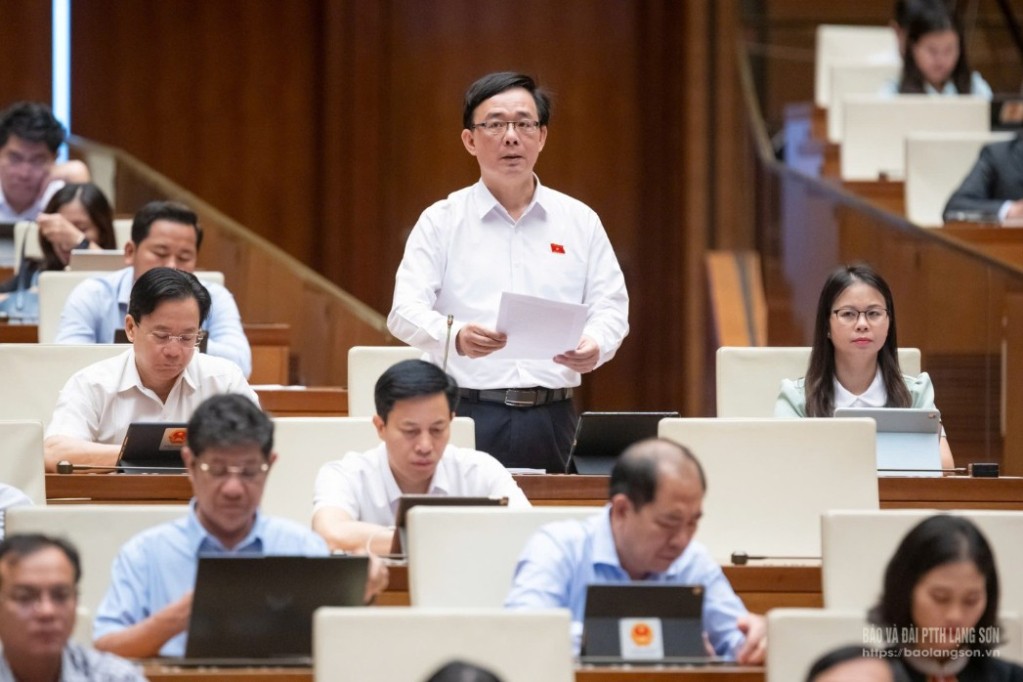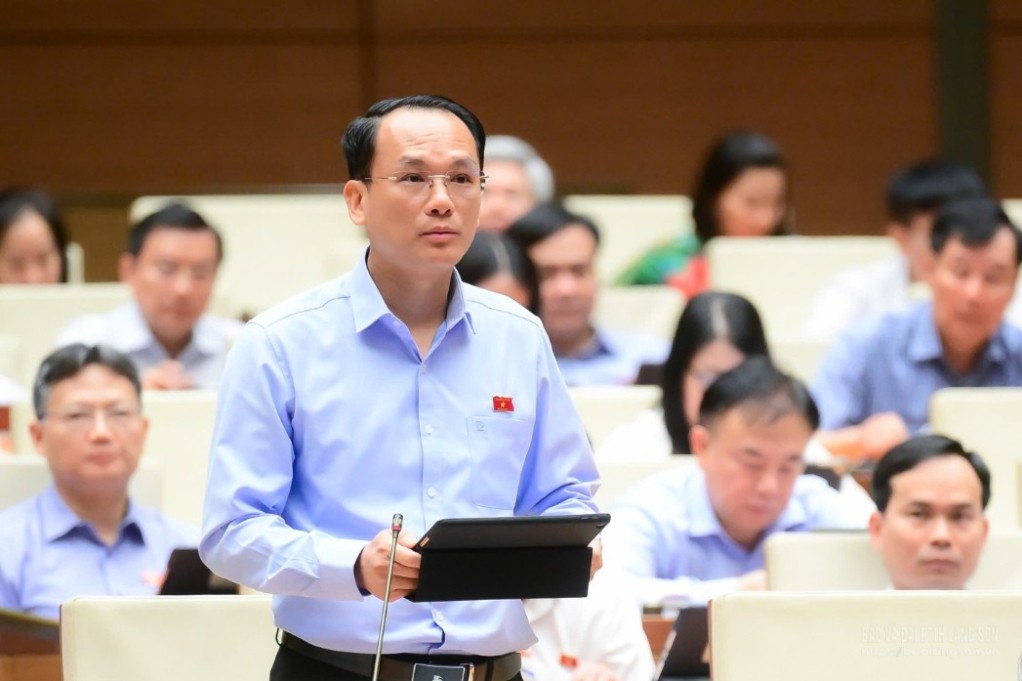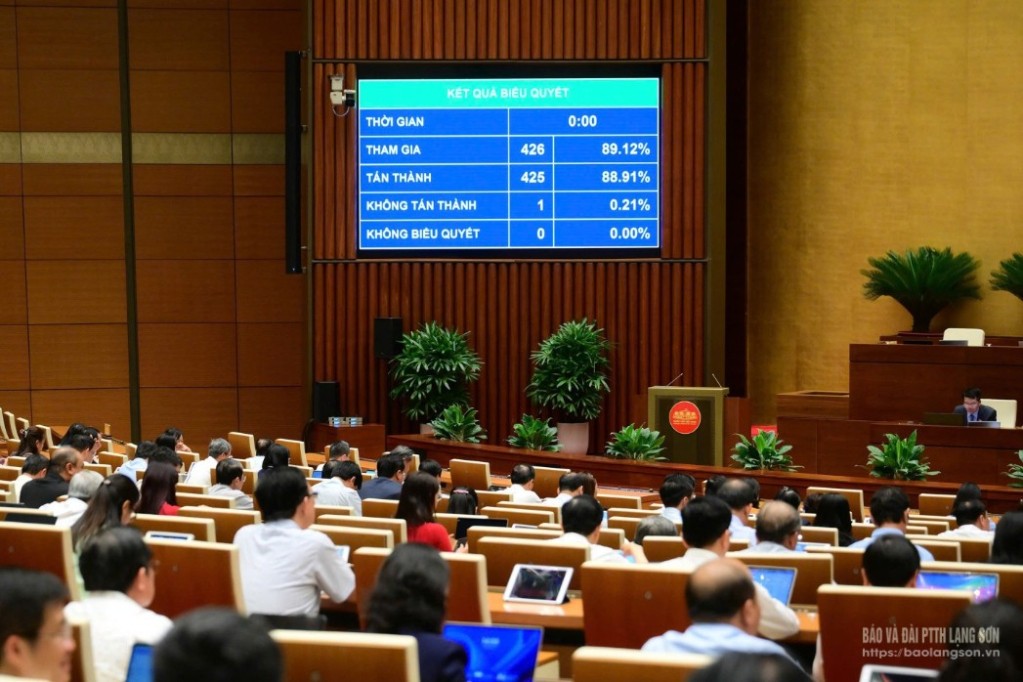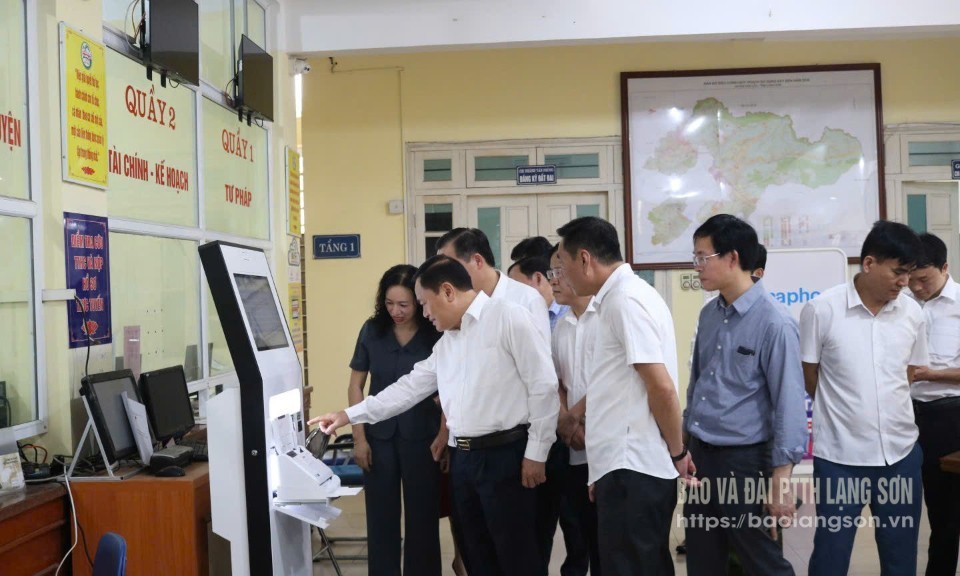National Assembly Deputies from the Province Participate in Discussions on Socio-Economic Development and the State Budget
On June 18, continuing the program of the 9th session of the 15th National Assembly, the National Assembly held a plenary session in the hall to review and discuss several important issues.

Participating in the session, the provincial delegation of National Assembly deputies consisted of five members, led by Mr. Hoang Van Nghiem, Secretary of the Provincial Party Committee, member of the National Assembly's Economic and Financial Committee, and Head of the provincial delegation.
Specifically, in the morning session, the National Assembly continued discussions in the hall on topics such as: the supplementary evaluation of the implementation of the 2024 socio-economic development plan and the state budget; the implementation status of the socio-economic development and state budget plan in the early months of 2025; and the approval of the 2023 state budget settlement.

Deputy Trieu Quang Huy, Vice Head of the provincial National Assembly delegation, contributed opinions on the results of the 2024 state budget implementation and the initial execution of the 2025 state budget estimates.
According to the deputy, Vietnam’s budget estimation work has not closely aligned with actual conditions, leading to a decrease in some projected revenue targets for 2024. The deputy suggested that in 2025 and subsequent years, the Government should direct ministries, sectors, and local authorities to prepare state budget estimates that more accurately reflect real circumstances. This is especially important as the state budget in 2025 and beyond must cover extensive expenditures for national target programs, business support, tuition fee exemptions, and more.
In recent times, the Prime Minister has closely directed efforts to accelerate public investment in key projects and disbursement of public investment capital. However, many ministries, sectors, and localities still have low disbursement rates, partly due to inadequate investment preparation. The deputy recommended that the Government direct relevant bodies to place greater emphasis on the preparation and planning of projects so that, once investment decisions are issued by competent authorities, implementation can proceed smoothly, practically, in line with approved timelines and investment estimates, thereby enhancing the efficiency of public investment and contributing to national economic growth.

Deputy Luu Ba Mac from the provincial delegation stated that during the 2015–2020 period, many localities had implemented urgent basic construction projects and accelerated their execution to ensure traffic safety and enhance investment effectiveness. Especially important were inter-provincial and inter-regional arterial roads, which play a crucial role in socio-economic development, national defense and security, and in connecting regional border gates.
In reality, several of these projects have been completed and put into operation. However, funding for settling outstanding construction debts has not yet been allocated, posing challenges to financial management, financial planning, and negatively affecting the reputation of state agencies among contractors and construction units.
The deputy called on the National Assembly, the Government, the Ministry of Construction, and the Ministry of Finance to consider and allocate, or report to the competent authorities to allocate, capital already listed in the medium-term public investment plan for 2021–2025 to settle these debts. This especially applies to projects whose outstanding construction debt data has been thoroughly reviewed and accurately reported.
The deputy also proposed that the National Assembly consider issuing a specialized resolution, or include a specific provision in the Resolution of this 9th session, to address obstacles and difficulties of the aforementioned projects with outstanding debts. Alternatively, it was proposed to add a provision to Clause 5, Article 9 of the draft law amending and supplementing seven laws (including the Public Investment Law, which is currently under review by the National Assembly) regarding the transitional provisions for the amended Public Investment Law. This provision would allow the allocation of public investment capital to settle construction debts incurred from January 1, 2015, to an appropriate point in time. One example is the project to renovate the roadbed and works on National Highway 4A, section Km8-Km29 and Km40-Km66 in Lang Son province, with a value of over 130 billion VND.

In the afternoon session, the National Assembly voted to approve the Law amending and supplementing certain articles of the Law on Economical and Efficient Use of Energy, as well as the Law amending and supplementing certain articles of the Law on Product and Goods Quality. The National Assembly also continued discussions in the hall on the draft amended Railway Law.
 Loading
Loading  Tiếng Việt
Tiếng Việt English
English 中文
中文


